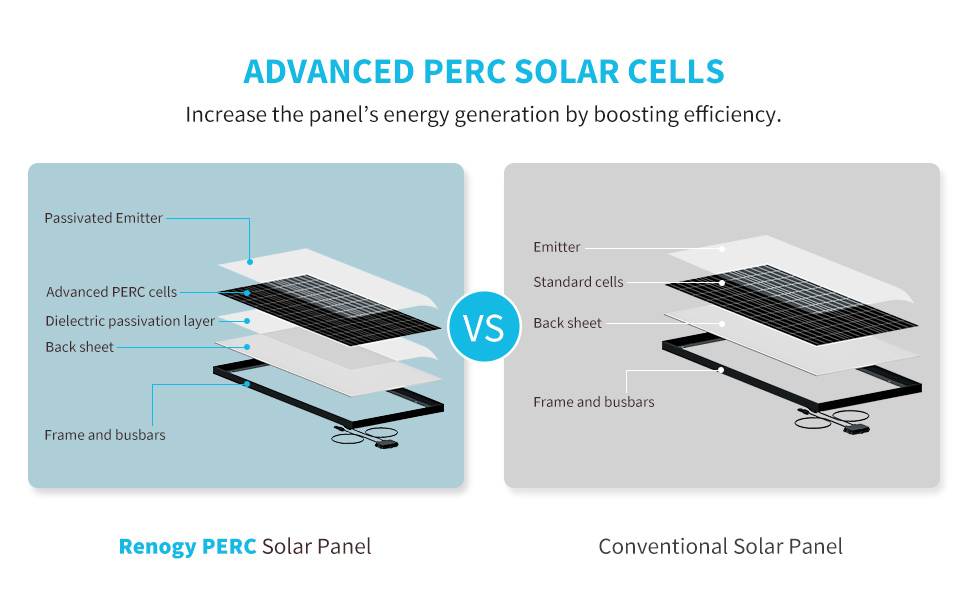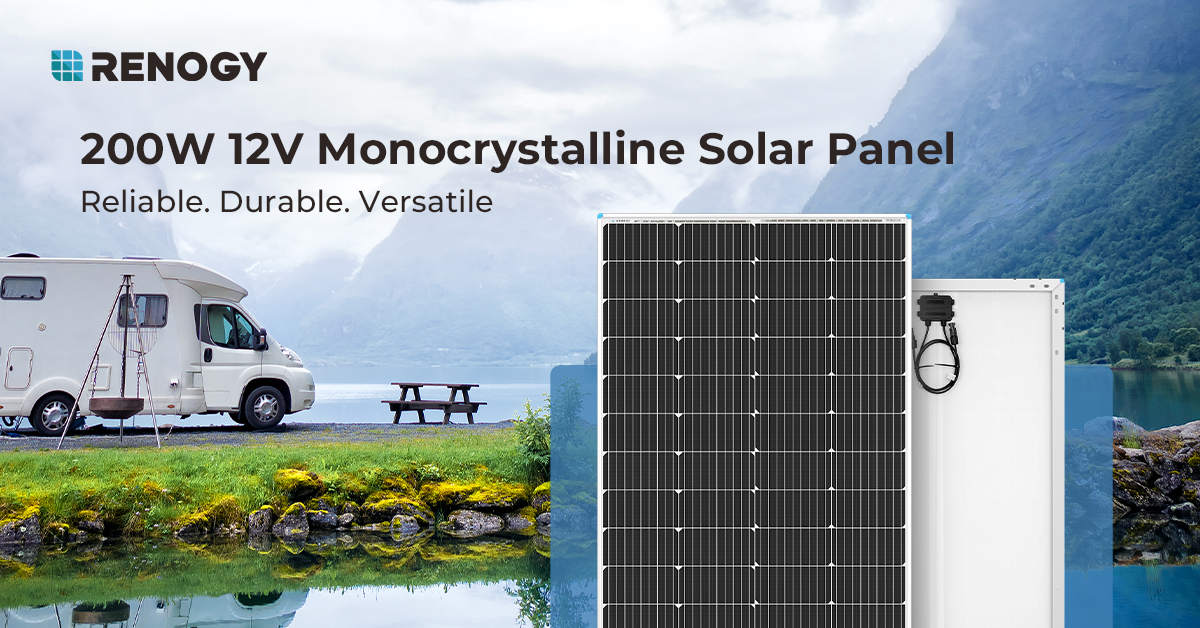Best Solar Panels for 2024: Which One Should You Choose?
Choosing the best solar panels for your home in 2024 requires careful consideration of efficiency, cost, and durability. As solar technology continues to advance, new models hit the market promising to be the most efficient solar panels available. But wading through the options can be overwhelming. This guide will break down the top solar panels of 2024, evaluating factors like performance, temperature coefficient, and manufacturer warranties. Whether you're looking for premium monocrystalline panels or more affordable polycrystalline options, we'll help you find the best solar panels for your needs and budget. With energy costs rising, investing in high-quality solar is more important than ever.
What is Solar Panel Efficiency?
Solar panel efficiency is one of the most important factors to consider when selecting the best solar panels for your home in 2024. A solar panel's efficiency rating represents how much of the sun's energy striking the panel is successfully converted into electricity.
The most efficient solar panels on the market today can convert over 22% of the sun's rays into usable electricity. However, these premium monocrystalline panels come at a higher price point. More affordable polycrystalline and thin-film options sacrifice some efficiency, with conversional rates in the 15-20% range.
As you evaluate the top solar panels for your installation, higher efficiency translates into greater energy production from the same surface area. The most efficient solar panels generate more power per square foot, allowing you to maximize your system's output with limited roof space. While they have higher upfront costs, investing in the most efficient solar panels available can pay off over the 25+ year lifespan of the system.
When shopping for new solar panels in 2024, review each model's efficiency rating carefully to find the right balance of cost and maximum energy production.
Most Efficient Solar Panels for 2024
As homeowners search for the best solar panels and most efficient options in 2024, two standout new products from Renogy deserve serious consideration - their 2PCS Bifacial 450 Watt Monocrystalline Solar Panel and 2pcs 550 Watt Monocrystalline Solar Panel.
2PCS Bifacial 450 Watt Monocrystalline Solar Panel

The 2PCS Bifacial 450W Monocrystalline model utilizes innovative bifacial cell technology to absorb light from both the front and rear sides of the panel. This bifacial design allows the solar cells to generate power not just from direct sunlight striking the front, but also from light reflected onto the rear side. Renogy claims energy yields up to 30% higher compared to standard monofacial panels.
The bifacial feature makes these panels exceptionally well-suited for installations with high albedo ground coverings like white rocks, sand or snow that can reflect additional light. Even in partially shaded areas, the bifacial cells can boost output by capturing reflected rays from the unshaded sections.
2pcs 550 Watt Monocrystalline Solar Panel

Renogy's 2pcs 550W Monocrystalline Solar Panel is another new highly efficient option for 2024. Engineered with high-efficiency PERC cells and a half-cut design, this panel maintains excellent energy production even in low light conditions. The partial cell cutting reduces resistive losses for improved efficiency and heat resistance.
The durable corrosion-resistant aluminum frame ensures extended outdoor use, backed by Renogy's 25-year performance warranty. With up to 30% higher energy yields than conventional solar panels, these could be top performers among the new solar panels hitting the market in 2024.
While premium products, the higher power output per square foot can maximize energy yields and long-term savings for homeowners determined to invest in the most efficient new solar panels available in 2024. As a respected brand, Renogy's innovative bifacial and PERC technology models are definitely worth consideration.
Renogy 4PCS Bifacial 320 Watt Monocrystalline Solar Panel

Designed with bifacial technology, these panels can increase energy output by up to 30% by capturing sunlight from both sides. They excel in generating more energy even in partially shaded areas, ensuring consistent power production throughout the day. The panels come with a durable, corrosion-resistant aluminum frame, backed by an enhanced 25-year performance warranty, guaranteeing long-term reliability. Additionally, homeowners can benefit from up to a 30% Residential Clean Energy Credit, making this investment more financially attractive. As one of the most efficient new solar panels on the market, the Renogy 4PCS Bifacial 320 Watt Monocrystalline Solar Panel promises higher energy yields and substantial long-term savings, solidifying its place as a top choice for 2024.
How We Choose the Best Solar Panels
With new solar panel models launching every year boasting greater efficiency and performance, selecting the best solar panels for 2024 required an in-depth review process. Our team evaluated the latest residential offerings from top manufacturers based on key criteria:
- Efficiency Rating: The most efficient solar panels convert a higher percentage of sunlight into electricity, maximizing energy production. We prioritized options exceeding 22% efficiency.
- Temperature Coefficient: Solar panels lose some efficiency as temperatures increase. A lower negative temperature coefficient indicates better heat tolerance.
- Energy Yield Estimates: Using advanced modeling software, we calculated estimated kilowatt-hour yields over 25 years for each panel.
- Brand Reputation & Warranty: Long-term manufacturer warranties and consumer reliability rankings factored into our trust assessments.
- Innovation & Quality: We favored new solar panels for 2024 incorporating innovative technologies like heterojunction or bifacial construction to boost output.
- Cost per Watt: While premium options command higher prices, we still considered the cost/watt value for various budgets.
Extensive field testing, solar expert consultations, andthorough data analysis allowed us to narrow down the list to the year's top solar panels across efficiency, reliability and cost-effectiveness categories.
The Factor that Affects Solar Panel Efficiency
When evaluating the most efficient solar panels and top models for 2024, it's important to understand the key factors that influence a panel's energy production capabilities. While published efficiency ratings provide a baseline, real-world conditions can significantly impact performance.

Cell Technology: Monocrystalline silicon cells have a higher efficiency potential than cheaper polycrystalline, with the newest N-type IBC and heterojunction cell designs pushing benchmarks over 24%.
Temperature Coefficient: As temperatures increase, solar panels experience a drop in voltage and efficiency described by the temperature coefficient. Premium low-temp coefficients preserve output on hot days.
Shading: Even partial shading from obstructions like trees or clouds can drastically reduce a conventional panel's output. Advanced bypass diodes, half-cut cells, and bifacial designs help maintain production.
Orientation: Solar panels achieve peak efficiency when the sun's rays are perpendicular to the surface. Smart tracking systems or west/east-facing arrays can increase annual yields.
Soiling: Dust, pollen, bird droppings and other buildup scatter sunlight before striking the solar cells. Regular cleaning maximizes light transmission to the photovoltaic surface.
By accounting for these efficiency-influencing variables, buyers can more accurately project the expected lifetime energy yields of new solar panels offered in 2024.
Conclusion
Ultimately, choosing the best solar panels for 2024 hinges on efficiency, durability, and overall performance. Renogy stands out by offering highly efficient, reliable, and affordable solar panels suitable for various applications. With advancements in solar technology, new solar panels are now more effective and long-lasting than ever before. To make an informed decision, consider factors like energy output, warranty, and installation options. Transition to solar energy with the best solar panels of 2024 and embrace a sustainable future.

FAQs
Can solar panels save you money?
Yes, solar panels can save you a significant amount of money over their 25+ year lifespan by generating free electricity from the sun. While installation costs are high upfront, the long-term savings on utility bills allow systems to pay for themselves and start generating a return on investment.
What type of solar panels are most efficient?
The most efficient solar panels are monocrystalline silicon panels, with efficiency rates often exceeding 20%. They achieve this through high-purity silicon cells and advanced technologies like PERC (Passivated Emitter and Rear Cell) and bifacial designs. These features enhance light capture and reduce energy losses, ensuring excellent performance even in low-light and partially shaded conditions. Monocrystalline panels are the top choice for maximizing energy production.
Are more efficient solar panels more expensive?
Generally, yes - solar panels with higher efficiency ratings tend to be more expensive upfront. However, the greater energy production per square foot can lead to better long-term returns and shorter payback periods, offsetting the higher initial investment for some homeowners.








